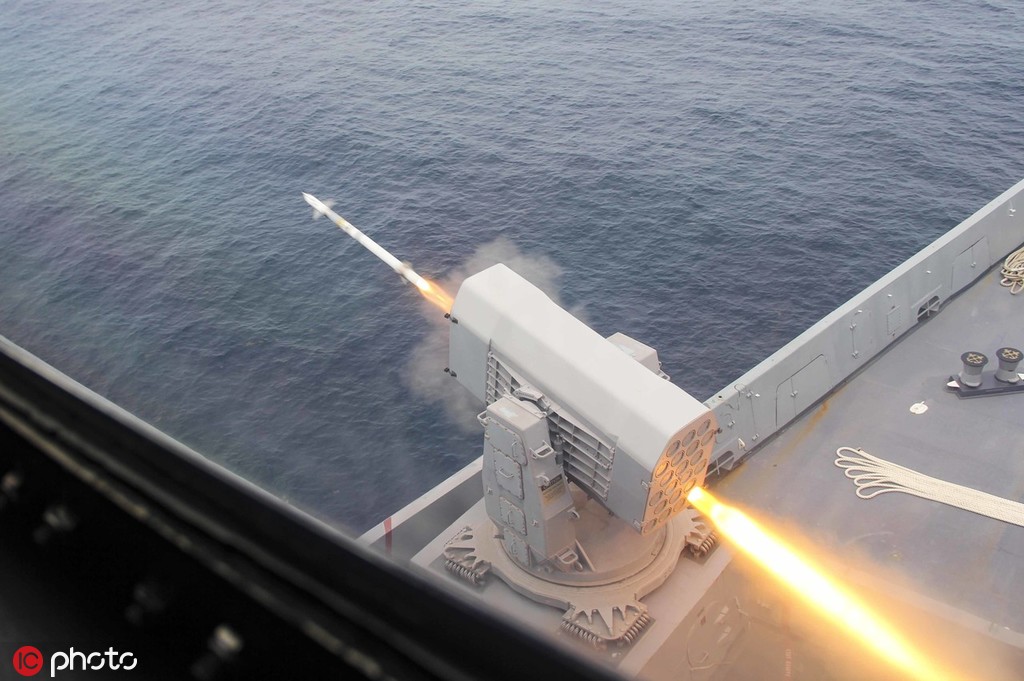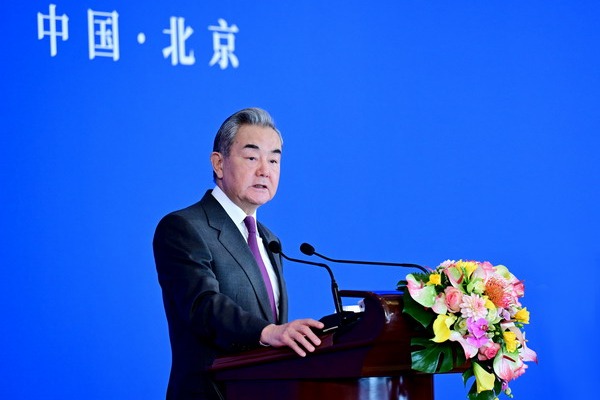War between US and Iran less likely


Disputes involving Teheran not always military related, expert says
It is unlikely the United States will start a war with Iran, although the tension has escalated between the two sides and the international community worries that the US is sliding toward war with Iran.
Yin Gang, a researcher from the Institute of West-Asian and African Studies of Chinese Academy of Social Sciences, argued that neither Washington nor Teheran is willing to spark a war in the Middle East as the issues related to Iran "are not always about military actions".
Instead of military strike, he said the US has decided to target Iran with economic measures as the former has enacted more sanctions.
The comment came after the US military said that the US forces are on high alert in Iraq and Syria over fears of "imminent threats" from Iran-backed forces in the region, according to Xinhua News Agency.
"US Central Command, in coordination with Operation Inherent Resolve (OIR), has increased the force posture level for all service members assigned to OIR in Iraq and Syria," US Central Command spokesman Bill Urban said in a statement.
OIR, responsible for the US military assistance in fighting the Islamic State militant group, "is now at a high level of alert as we continue to closely monitor credible and possibly imminent threats to US forces in Iraq", Urban added.
The high alert was based on "credible threats available to intelligence from US and allies regarding Iranian-backed forces in the region", the spokesman noted.
Meanwhile, US President Donald Trump, who has repeatedly argued for avoiding long-term conflicts in the Middle East, discounted a New York Times report that the US has updated plans that could send up to 120,000 troops to counter Iran if it attacked US forces.
Reinforcing Trump's denial, Secretary of State Mike Pompeo said the US "do not seek war with Iran" at a joint news conference in Sochi with Russian Foreign Minister Sergei Lavrov, according to The Associated Press.
Iranian Supreme Leader Ayatollah Ali Khamenei also said on Tuesday that Teheran does not seek war with the US, despite mounting tensions between the two archenemies over Iranian nuclear capabilities and its missile program, according to Iran's Press TV.
As tensions in the region started to surge, British Foreign Secretary Jeremy Hunt said his nation was worried about the risk of accidental conflict "with an escalation that is unintended really on either side", according to AP.
"What we need is a period of calm to make sure that everyone understands what the other side is thinking," Hunt said.
The US military move came amid the tense situation in the region after Trump decided not to reissue the sanctions waivers for major importers to continue buying Iran's oil when they expired in early May.
However, Yin said in the future the US and Iran will come back to the negotiation table as this might be the only choice for Iran. The Iran side has already started to "set the table" by giving a 60-day time limit.
If no new nuclear deal is in place, Teheran recently threatened to resume higher enrichment in 60 days. This would be enrichment beyond the 3.67 percent permitted by the current nuclear deal signed in 2015 between Teheran and world powers. The US has withdrew from the deal last year.
The European Union and the foreign ministers of Germany, France and Britain said they were still committed to the deal but would not accept ultimatums from Teheran.

































